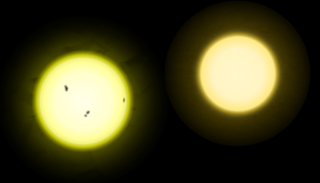
Posted on 08/24/2007 1:21:38 PM PDT by blam
Jupiter increases risk of comet strike on Earth
11:53 24 August 2007
NewScientist.com news service
David Shiga

Earth experienced an especially heavy bombardment of asteroids and comets early in the solar system's history (Illustration: Julian Baum)
Contrary to prevailing wisdom, Jupiter does not protect Earth from comet strikes. In fact, Earth would suffer fewer impacts without the influence of Jupiter's gravity, a new study says. It could have implications for determining which solar systems are most hospitable to life.
A 1994 study showed that replacing Jupiter with a much smaller planet like Uranus or Neptune would lead to 1000 times as many long-period comets hitting Earth. This led to speculation that complex life would have a hard time developing in solar systems without a Jupiter-like planet because of more intense bombardment by comets.
But a new study by Jonathan Horner and Barrie Jones of Open University in Milton Keynes, UK, shows that if there were no planet at all in Jupiter's orbit, Earth would actually be safer from impacts.
The contradictory results arise because Jupiter affects comets in two different, competing ways. Its gravity helps pull comets into the inner solar system, where they have a chance of hitting Earth, but can also clear away Earth-threatening comets by ejecting them from the solar system altogether, via a gravitational slingshot effect.
Tripled impacts
According to the new study, the worst scenario for Earth is when Jupiter is replaced by a planet with about the mass of Saturn. "[Such a planet] is fairly capable of putting things into an Earth-crossing orbit, but still has some difficulty ejecting them, so they will stay on an Earth-crossing orbit for a much longer time," Horner told New Scientist. The projected result was more than three times as
(Excerpt) Read more at space.newscientist.com ...
Don't know about "soon" ... some will be sooner, some later ... but the truth is, we are all going to die.
tx_eggman® ... spreading good cheer one reply at a time.
Geee, I’m sorry about that. How TOTALLY un-pc of me.
I would never disagree with you on that point. How much misery and fear must we live with for such an outcome! LOL
I wish we had his methodology. I have my doubts. I wonder if he only accounted for the actions of the known planets to account for the planetary trigger of Kuiper belt objects? His point was that Jupiter may throw a bunch out of the solar system, but it pulls in some number too. My guess is that interactions among Kuiper belt objects themsleves and interstellar matter like gas clouds have a lot more to do with generating comets than Jupiter does these days.
I’m just say’n, it would be real easy to get this one wrong.
Stupid Jupiter.
Sure you can ... if you would care to return to the 25 year expected lifepsan of humans before civilization arose.
Eheu!Totum de caelo caeruleo venit!
I wonder if this guy’s theory will be disproved in a few more years. I still believe that the earth is a very privileged planet, in many ways.
Shame on you!
What is our supreme master, Al Gore’s solution? Does our supreme master, Al Gore blame us for Jupiter’s existence?
Can’t sleep until the bloated one calms me down by speaking words of wisdom and dazzling us with his supreme skill and expert handling of the laser pointer to solve the Jupiter problem.
Class action lawsuit.
Well that’s it then. Let’s just light it on fire and make it do something useful.
No. "Attempt no landings there."
:)

Obviously we need a global initiative (funded by a tax on American obesity) to mount a program to develop the technology to blast Jupiter to smithereens before our planet can be decimated by a huge comet impact.
If we don’t start acting NOW, it will be too late.
Let's just build a big rocket and use it's atmosphere as reaction mass. Next stop, Epsilon Eridani. It's a bit smaller than our sun, but it does have it's own Jupiter sized planet, so we'd probably have fuel to come back with. Epsilon Eridani is the location of the space station itself in the Babblyon 5 universe. In the World War books by Turtle Dove, it's the home of one the subject races of The Race Lizards) that are attempting to make mankind another such.
Or maybe Tau Ceti. It's similar in size and spectral class to the sun, but is not thought to have a large Jovian type planet. It's system does have a lot of dust, but the star itself seems to be deficient in metals.

(Sol, with the spots, on the left, Tau Ceti on the right)
Paging John Edwards.
Disclaimer: Opinions posted on Free Republic are those of the individual posters and do not necessarily represent the opinion of Free Republic or its management. All materials posted herein are protected by copyright law and the exemption for fair use of copyrighted works.